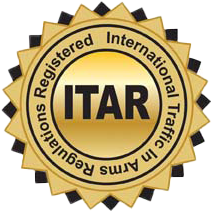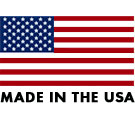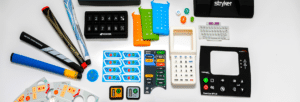It’s an age-old debate: silicone keypads vs. touch screens…which is better? You may have your own opinion, but in ours, we believe that silicone keypads are far superior, bringing many stellar benefits over their touch screen counterparts. When it comes to durability, functionality, and usage, we think your business should select silicone rather than touch screens for your products. Why? Here are a few good reasons.
Silicone is More Responsive
No matter what industry you’re in, it stands to reason that silicone keypads are simply easier to operate than touch screens are.
- Example: Let’s say you have to wear gloves as part of your job. Maybe you work outside in the cold and must wear thick winter gloves, or maybe you work indoors in a lab and have to protect yourself against germs by using latex gloves. If you are working with a touch screen, you have to take off those gloves in order for your fingerprint and touch to register. With silicone, these are physical buttons that you can depress without having to take off gloves. This capability is just more practical in today’s demanding workplace.
Silicone Has a Better Click Response
Do you like to hear and feel the satisfying click of the buttons you use on a device? You won’t get that distinct sound by using a touchscreen. It’s not just the fact that you like hearing the sound, it’s also for safety and accuracy. If you don’t hear or feel the button depress, how do you know you have pressed the correct buttons?
- Example: This is especially important for cashiers, hospital personnel, and administrators. With a touch screen, you may have to repeatedly press a button to make sure you actually clicked it, especially when you’re multi-tasking and not looking directly at the screen. Silicone button depression gives you a click or snap to let you know the right response was engaged.
Silicone is More Accurate
Silicone keypads can be relied on for their accuracy. Touchscreens, on the other hand, are difficult to use and respond to.
- Example: People in fast-paced work environments may find themselves hitting touchscreen keys by accident, or the system kicks in with the auto correct and replaces what you wanted to say with something completely different. Someone’s life could be on the line, and you don’t want to take this risk. Mechanical silicone keypads feature clear-cut, distinguishable barriers and a myriad of physical characteristics that ensure separation of the keys, making intentional and unintentional mistakes unlikely.
Silicone Leaves No Smudges
While popular for smart phones, for example, touch screens are prone to getting smudged with fingerprints so you have a hard time deciphering the screen, viewing your selections or pressing the right buttons. To get the smudges off, you may find yourself cleaning the screen often, which detracts from your productivity and wastes time. This is not an issue with silicone keypads, as smudges on the keys don’t impact function.
Silicone is Affordable
Silicone keypads cost less to manufacture than touch screens do. And in terms of ongoing maintenance, they don’t need as much. Touch screens are costly and inefficient to replace, while silicone keypads are more durable, less costly, and longer lasting.
Contact Si-Tech
We would be happy to go over more silicone keypad advantages. Just get in touch with us at 757-887-8488 or download our application guide.








